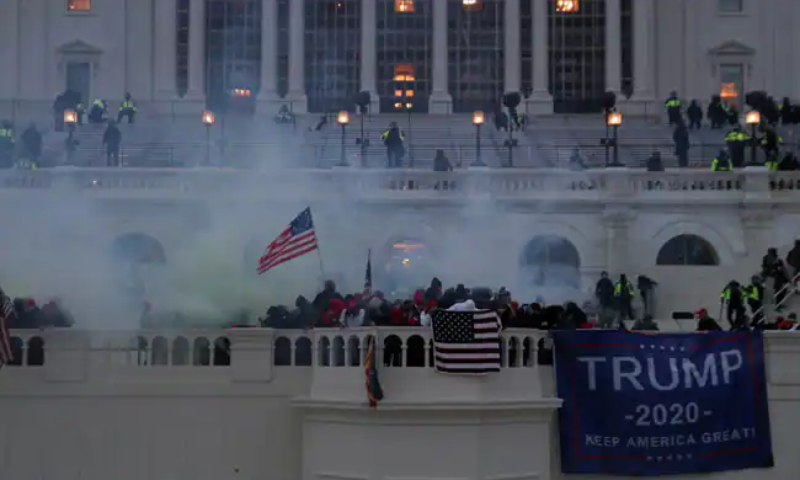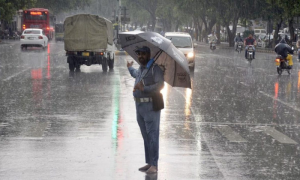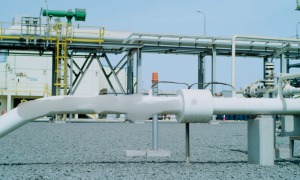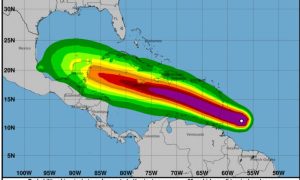WASHINGTON: Prosecutors have overstepped in charging January 6 rioters with obstruction for attempting to prevent certification of the 2020 presidential polls, the US Supreme Court said, throwing hundreds of cases into uncertainty.
The matter was brought to the apex court through a plea by former police officer Joseph Fischer, a supporter of ex-president Donald Trump who entered the Capitol in Washington with hundreds of people on January 6, 2021.
Writing the opinion for the majority, CJ John Roberts stated prosecutors’ interpretation of the law would “criminalize a broad swath of prosaic conduct, exposing lobbyist(s) and activists to decades in prison.”
The Chief Justice wrote the government “must establish that the defendant impaired the availability or integrity for use in an official proceeding of records, objects, and documents used in an official proceeding, or tried to do so.”
The matter was decided 6-3, with Ketanji Brown Jackson joining with the court’s conservatives. Amy Coney Barrett, appointed by former President Doland Trump, penned the opposition, which was joined by judges Elena Kagan and Sonia Sotomayor.
It now heads back to a lower court, which will take a decision whether or not Fischer’s indictment can still stand in light of the narrower interpretation of obstacle.
In all, around 52 rioters have been convicted and sentenced only on obstruction allegations, with 27 currently imprisoned, according to the Department of Justice. Around 249 people were charged with obstruction charges in addition to another felony.
Attorney General Merrick Garland said that the vast majority of over 1,400 defendants charged for their unlawful actions on January 6 will not be affected by this verdict.
This case has significant implications for Donald Trump, who faces four felony charges brought by Special Counsel Jack Smith over his alleged attempts to overturn the results of the 2020 polls.
But this matter is on hold until the Supreme Court rules on Donald Trump’s claims he is immune from criminal prosecution, which the judges are now likely to deliver on Monday.























